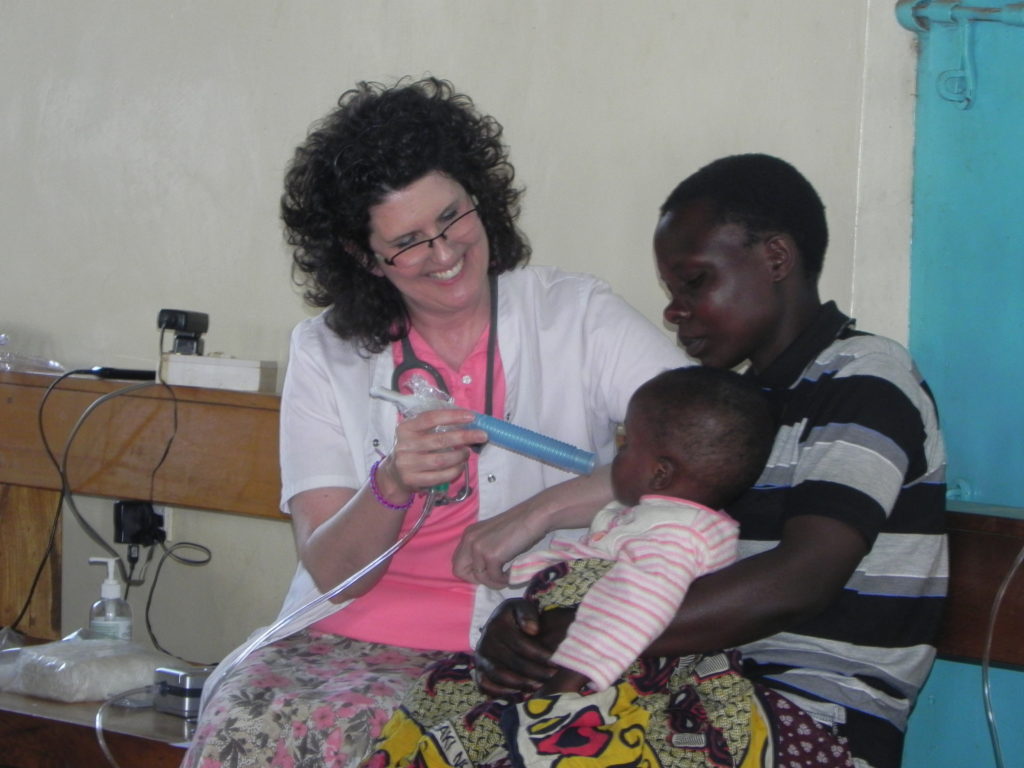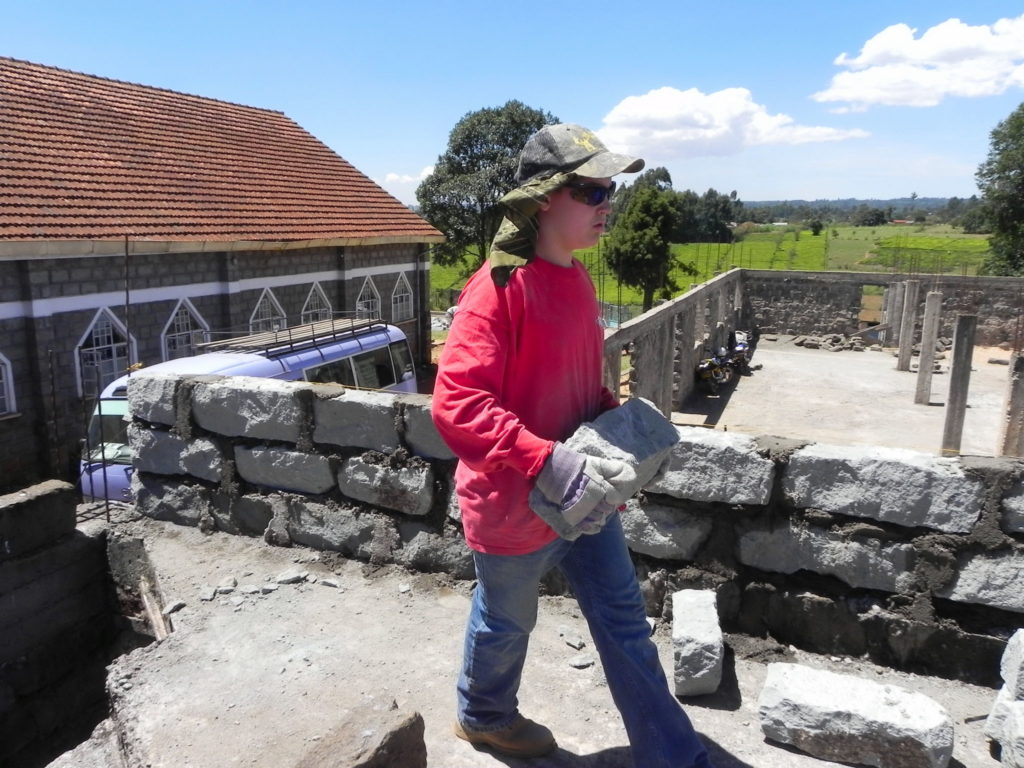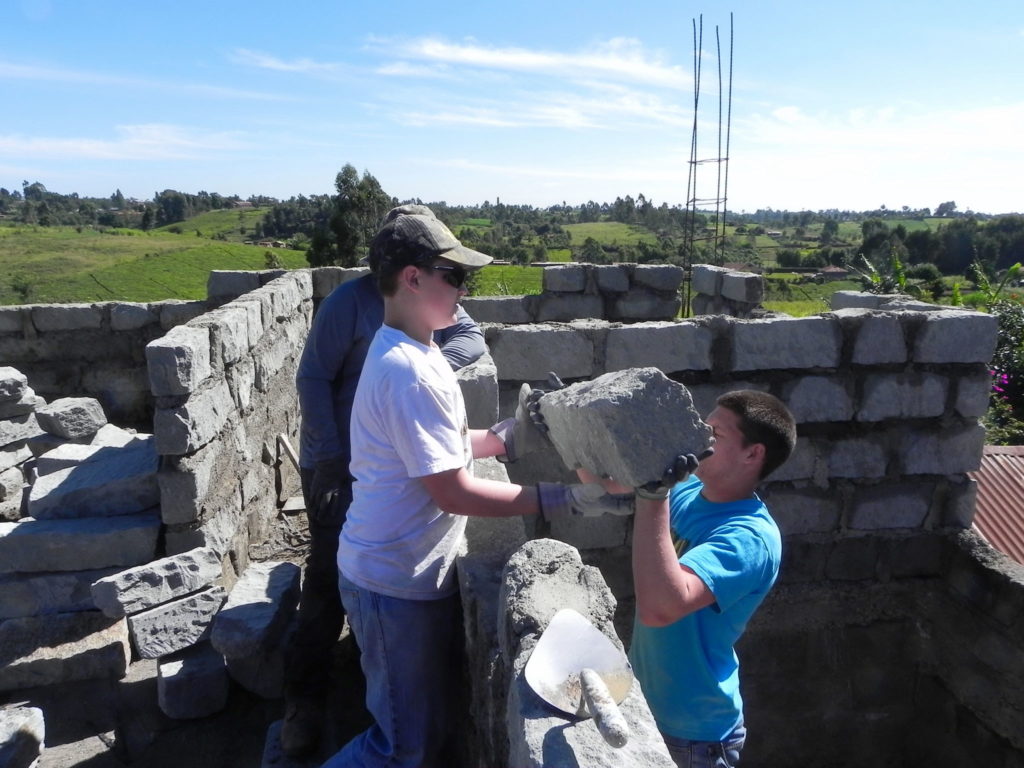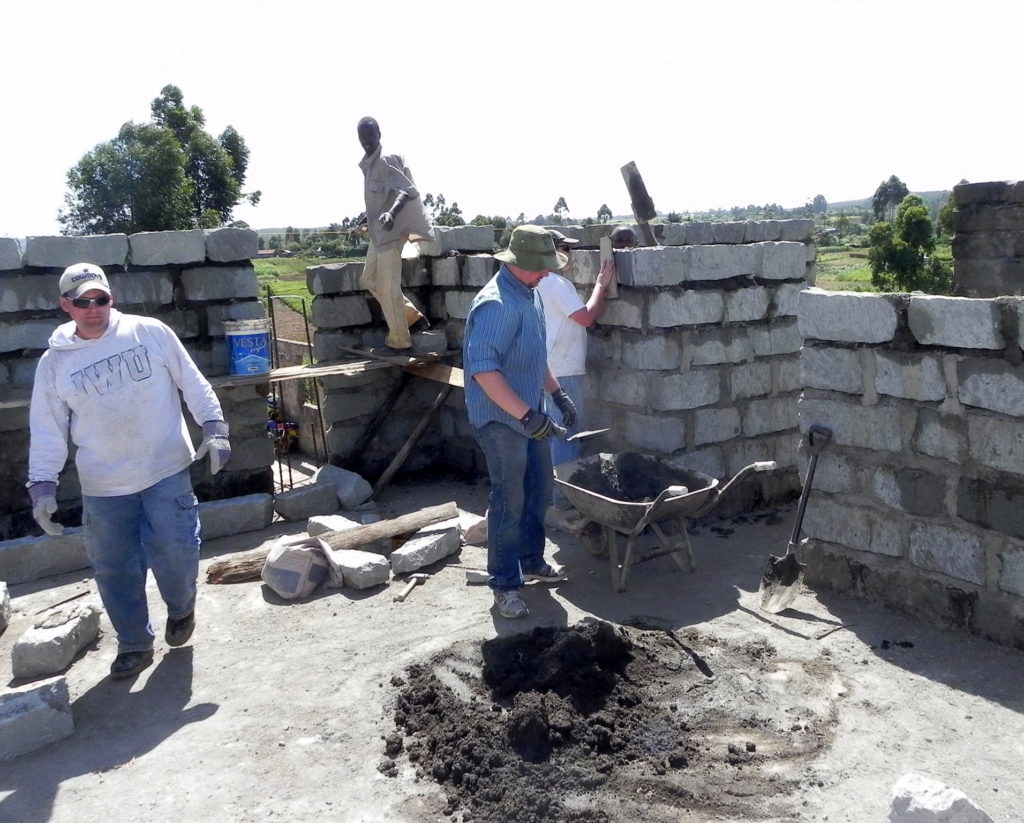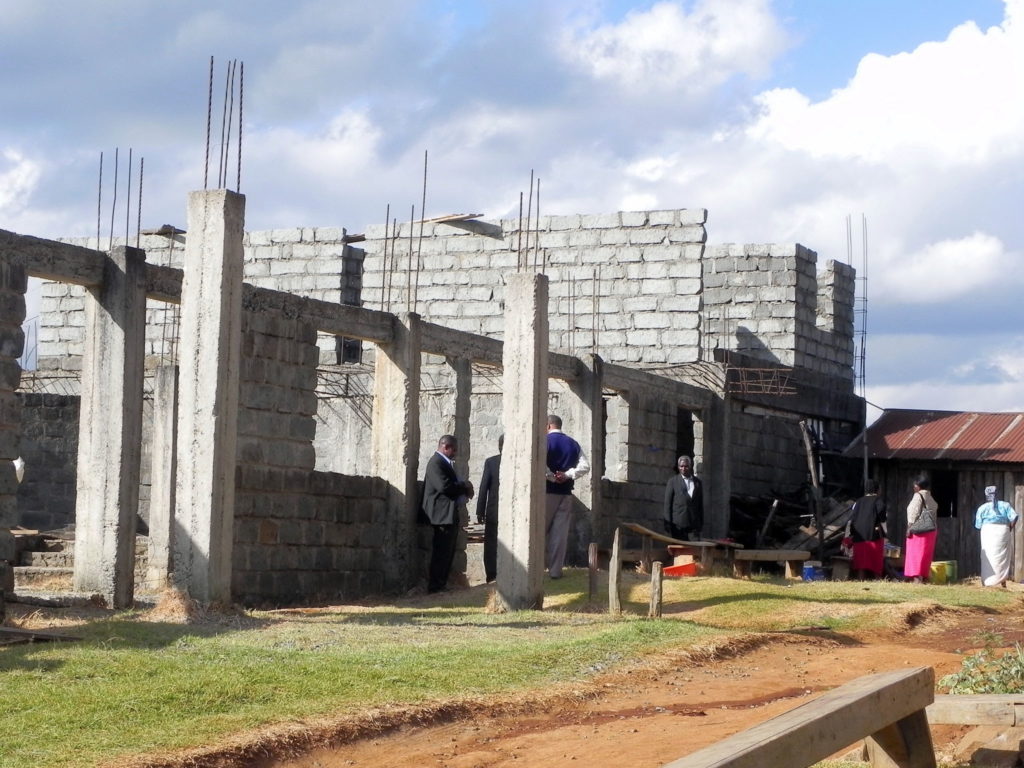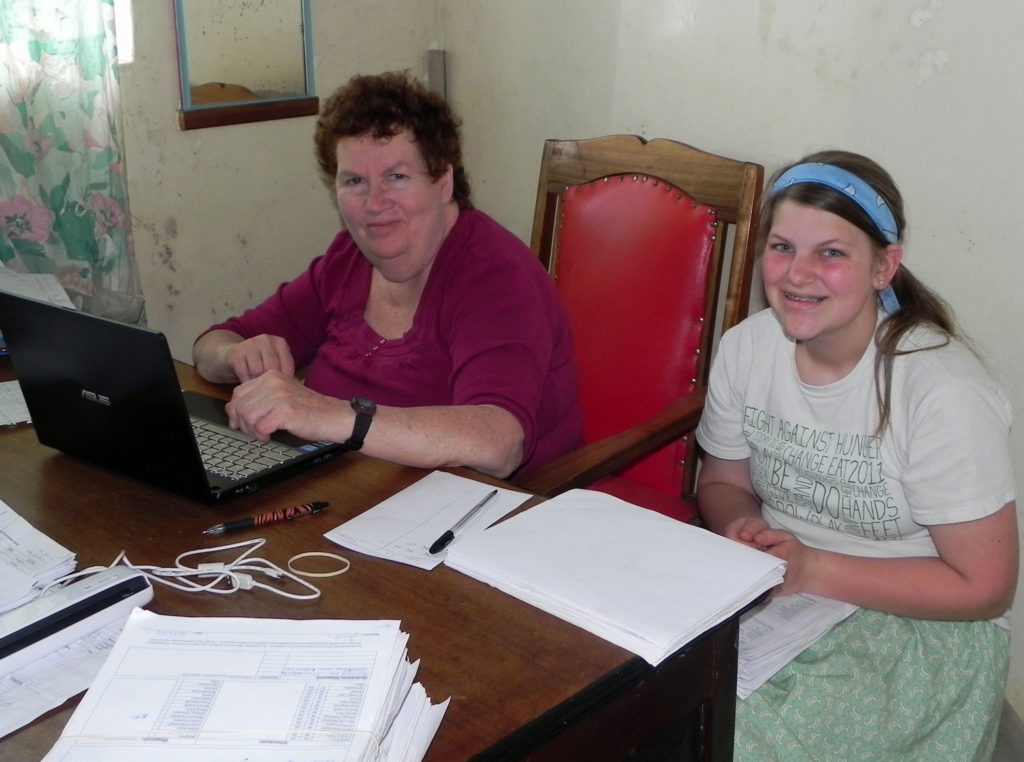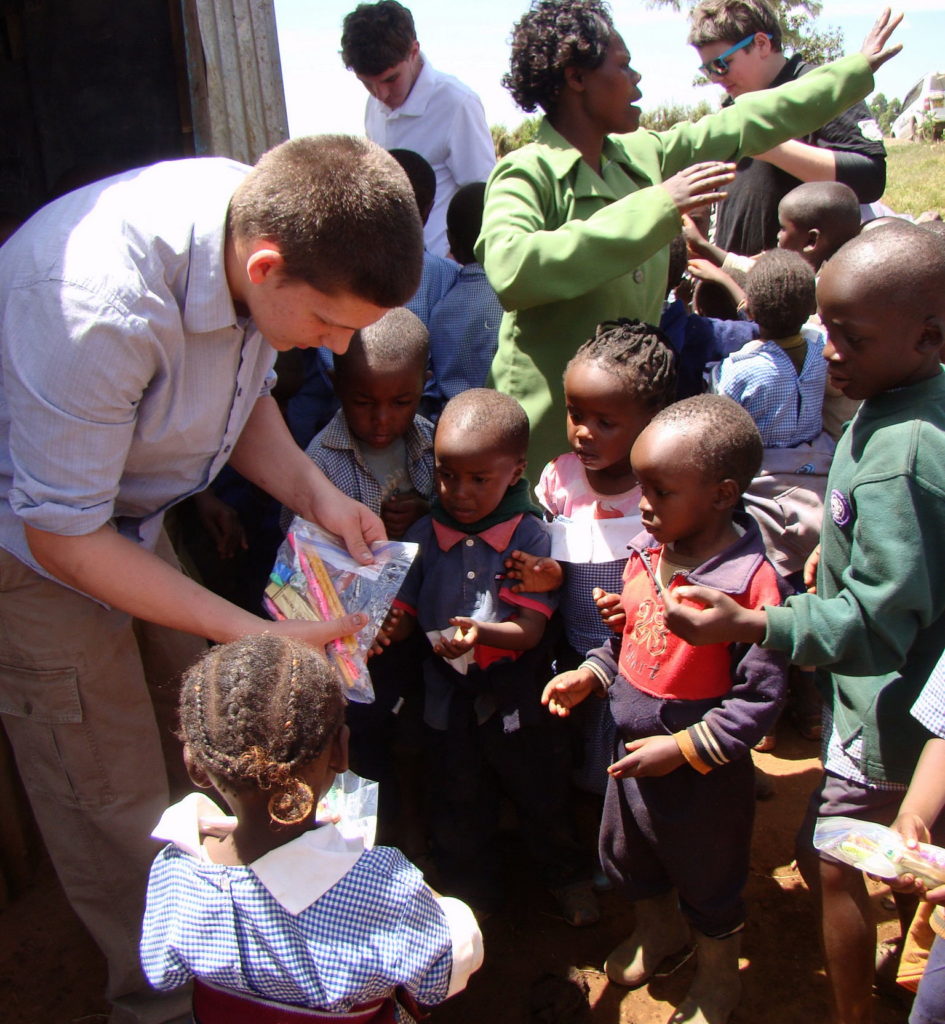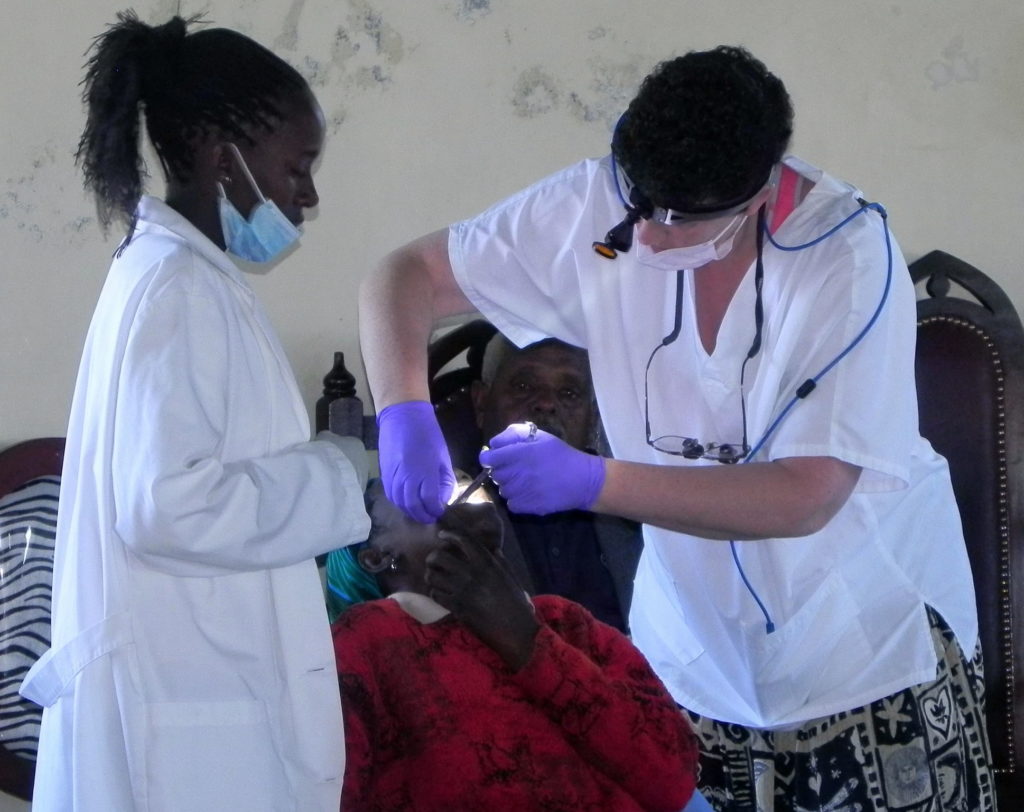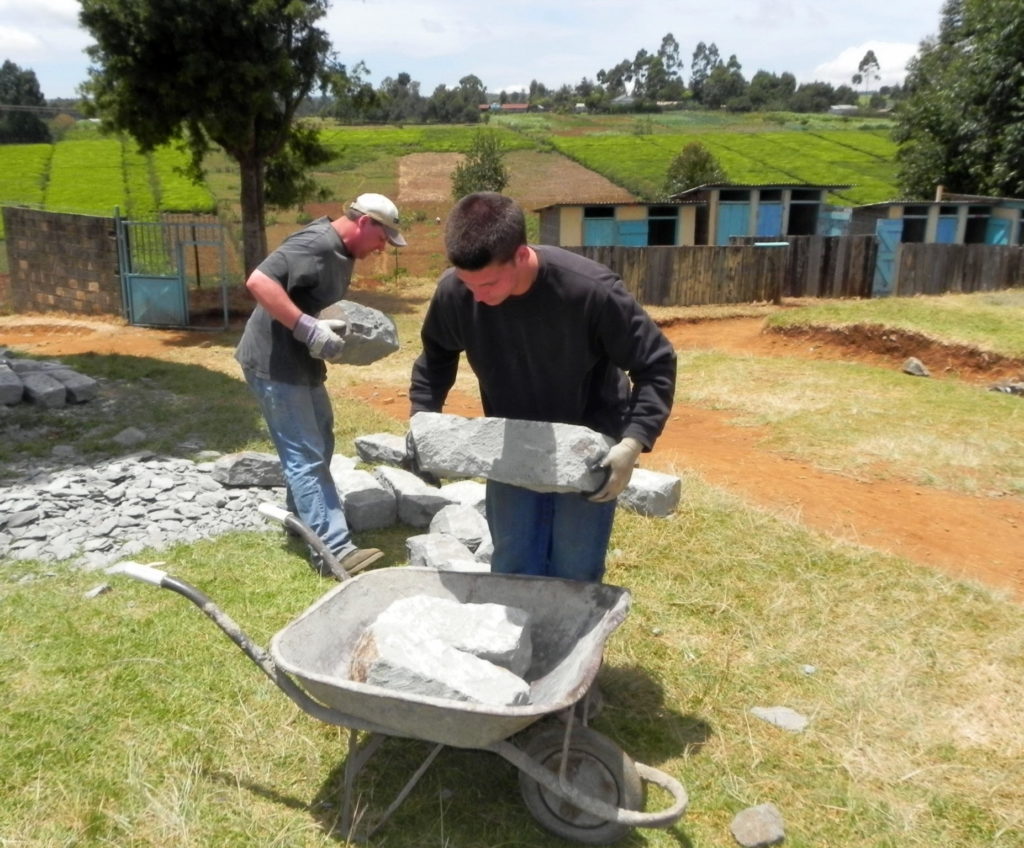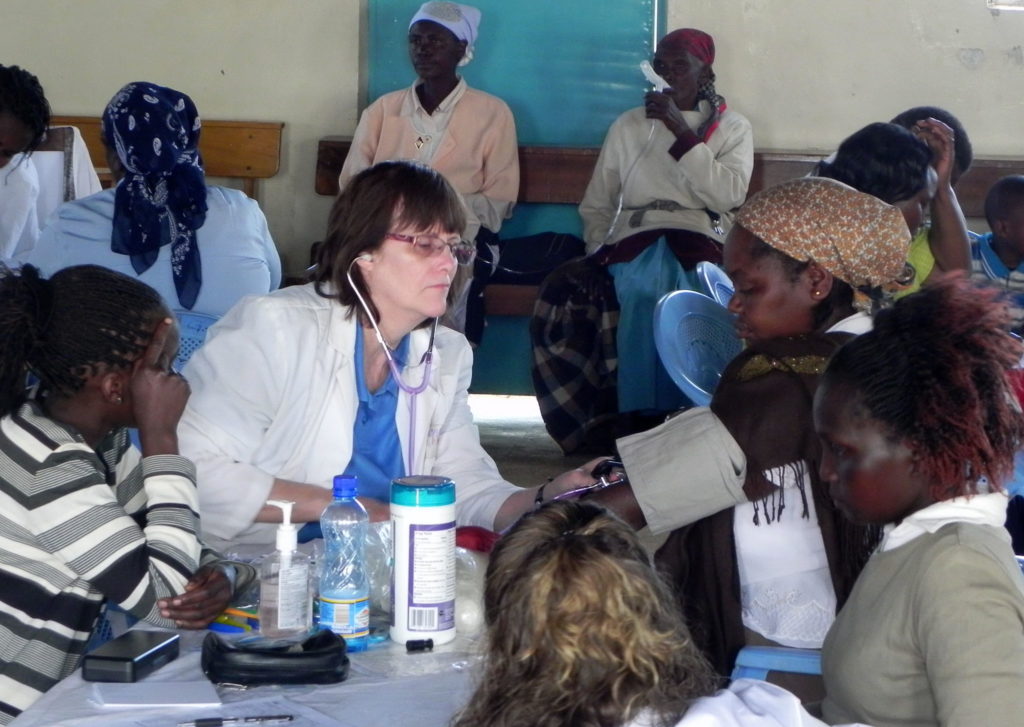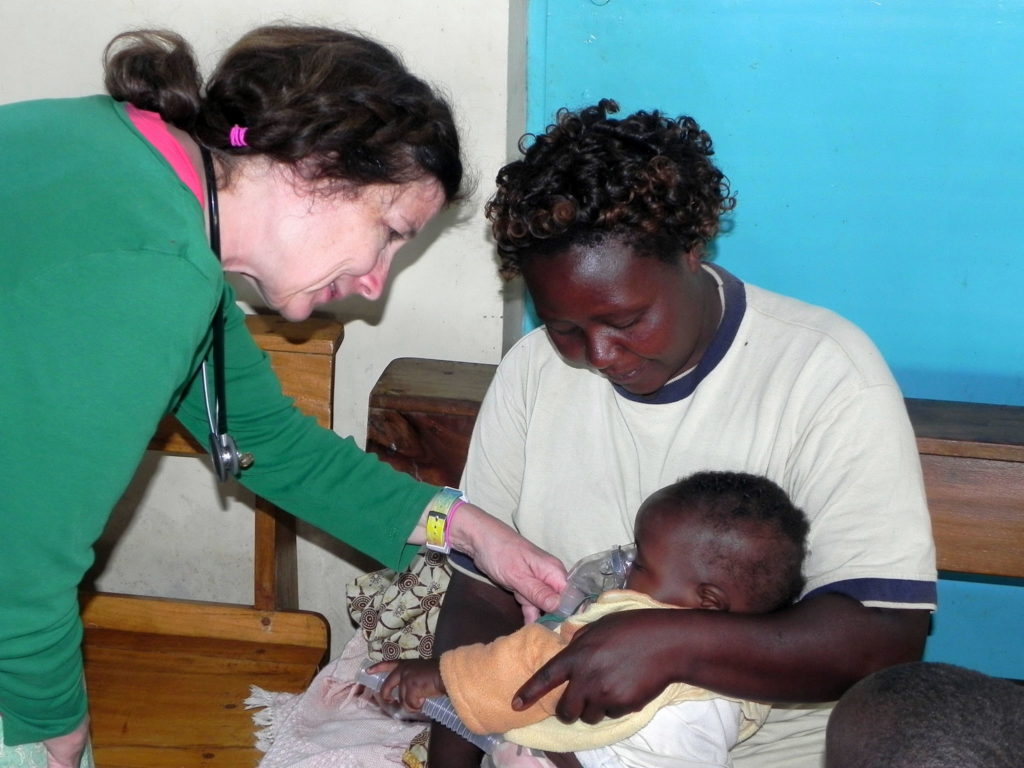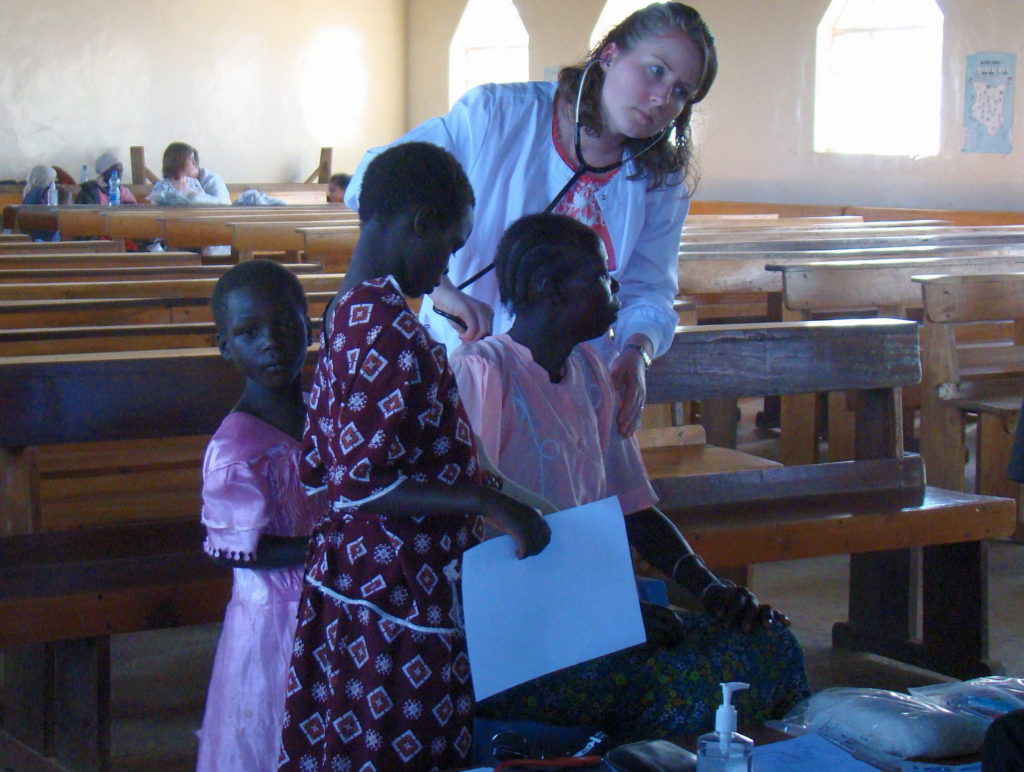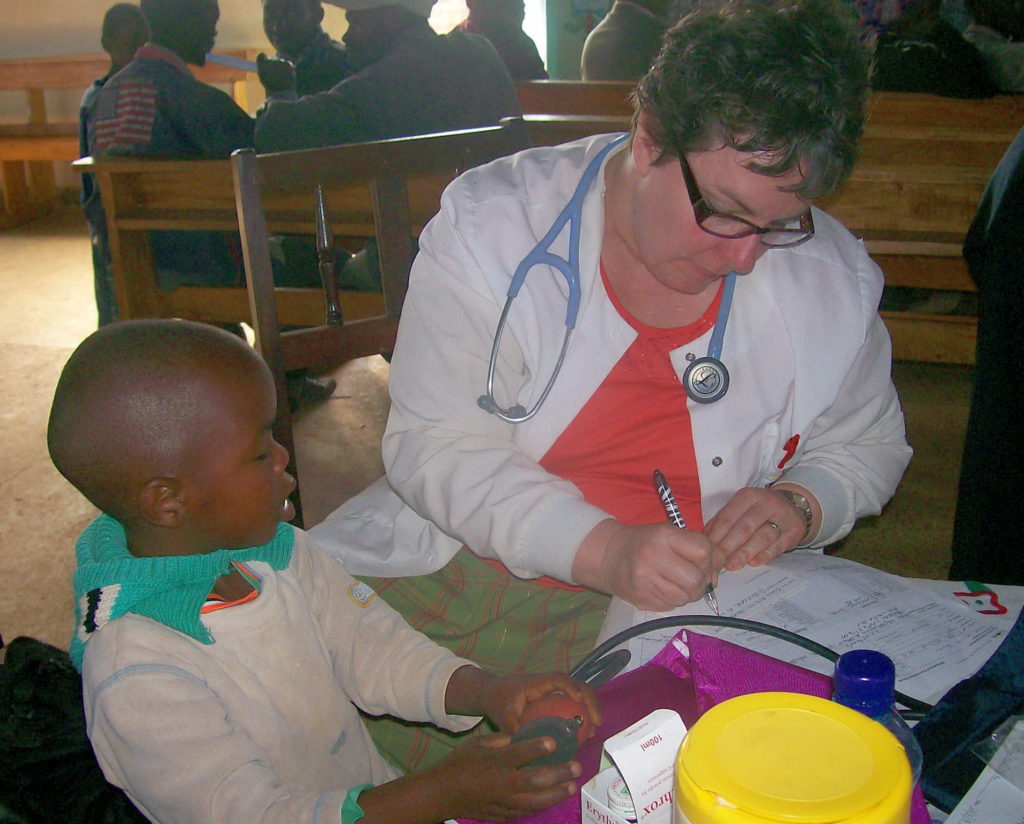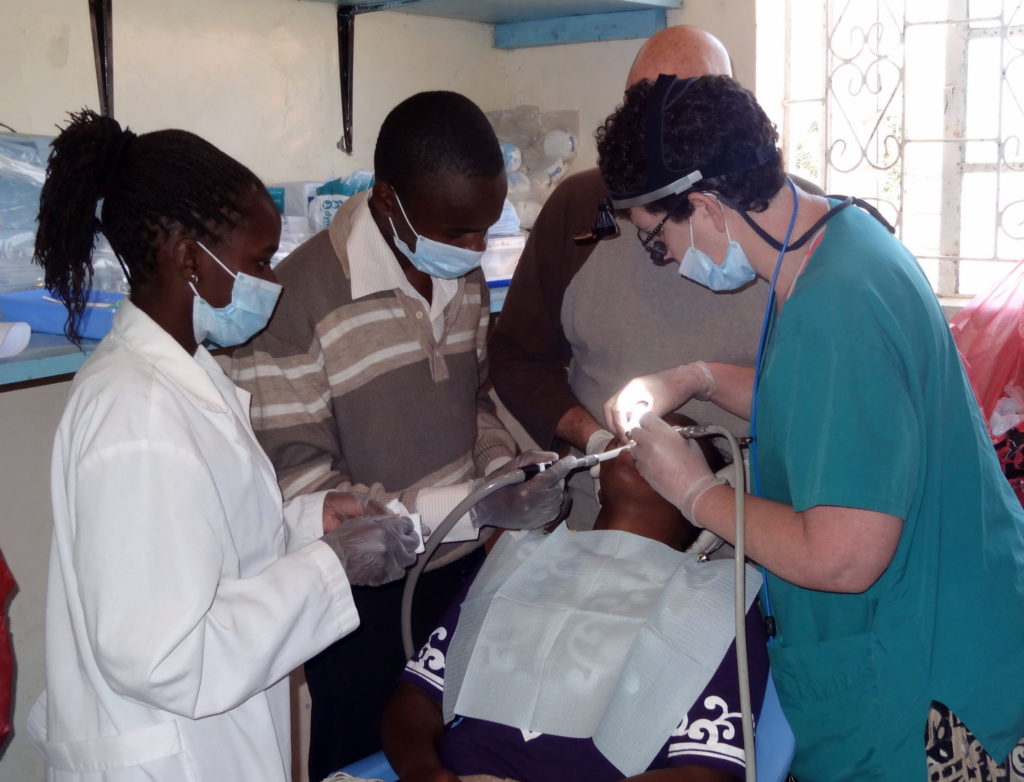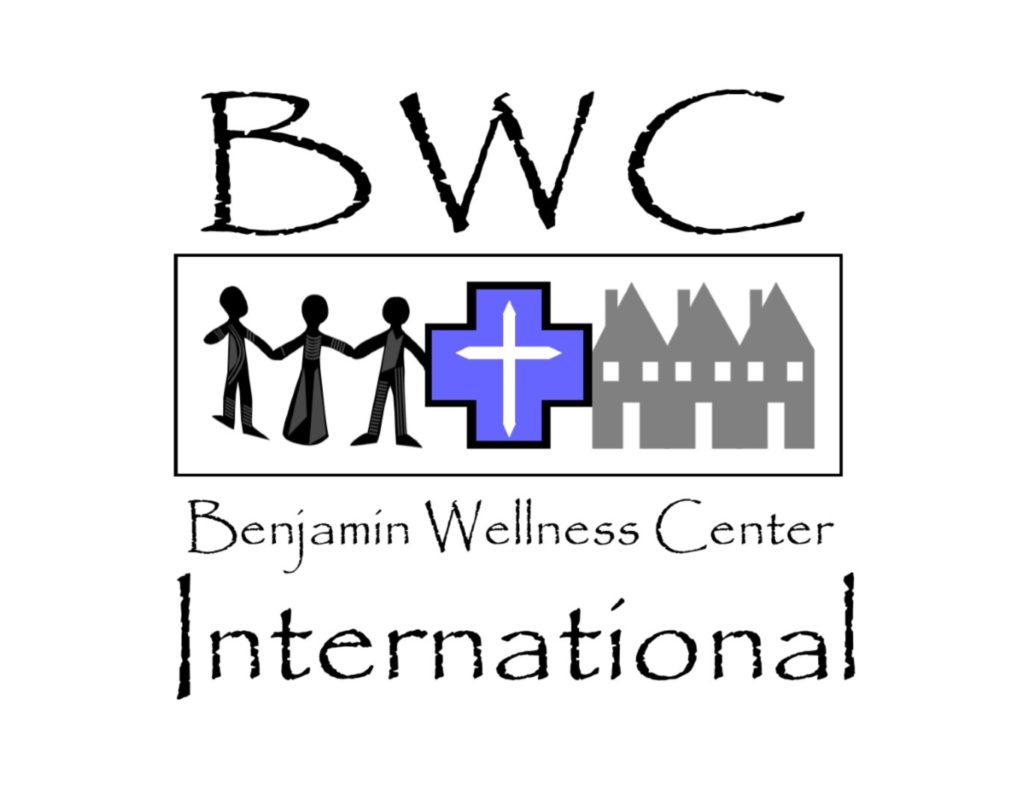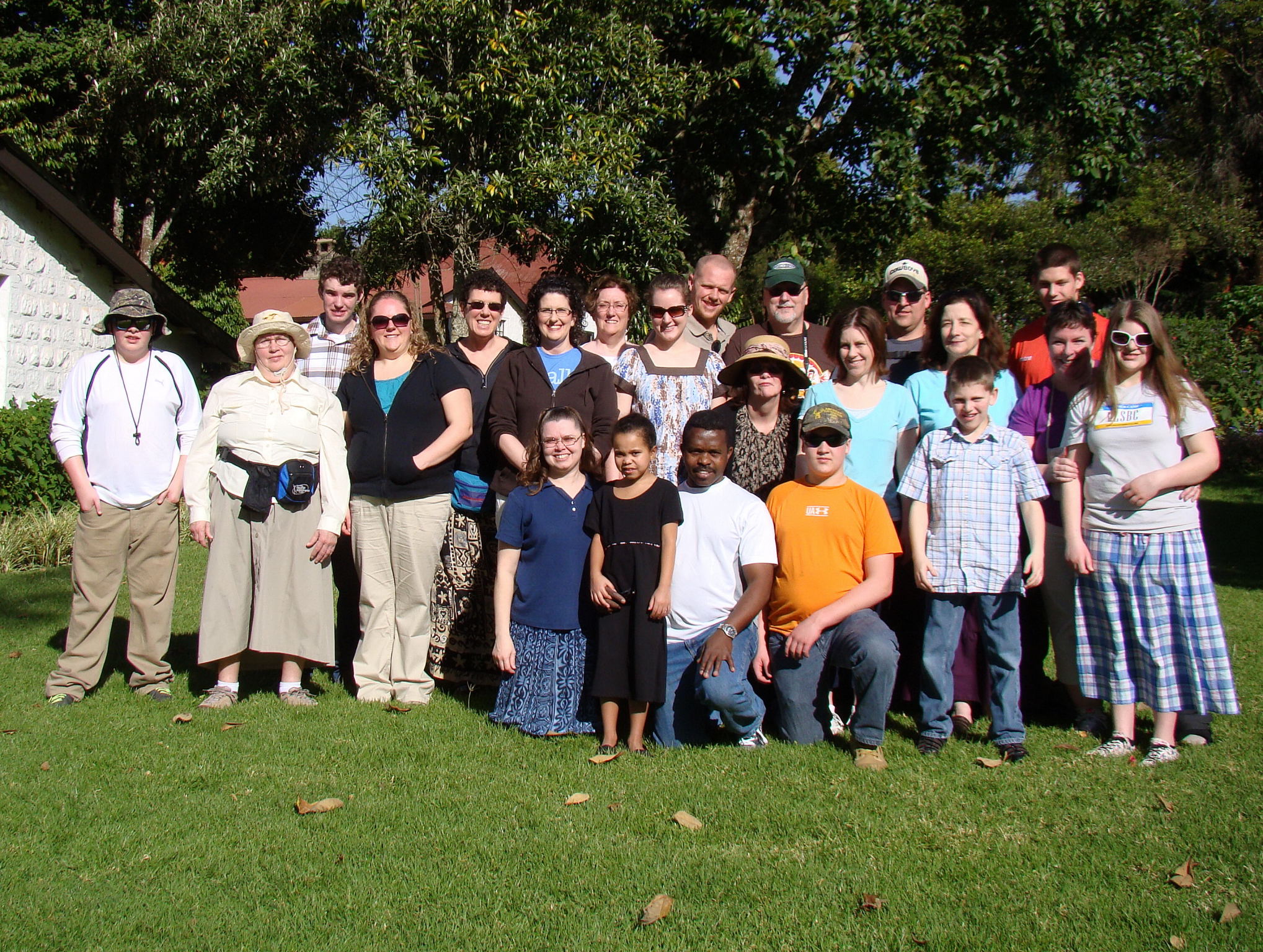Over the course of the nine days of medical camp, approximately 1,300 patients were seen and treated. Of these patients, two-thirds were from the community of Gatamaiyu, while the remaining third were from other areas. Of all of the patients who came from treatment, only 5-10% of patients presented with high blood glucose levels, which was a significant decrease from past years. The first medical camp conducted in March, 2010, saw approximately 45% of patients present with high blood glucose. Beginning with that camp, we have put much effort into educating the patients regarding their blood glucose levels. During this camp, we saw more patients routinely taking medicine for diabetes, and we continue to try to educate the patients on diabetes and glucose management.
A variety of other illnesses were treated over the course of the camp. The percentage of patients with high blood pressure had risen slightly from the past, and high blood pressure/hypertension continues to be a public health issue in Gatamaiyu and the surrounding communities. Many patients returned periodically during the camp, some even daily, to have their blood pressures checked. A significant number of patients presented with either pulmonary/respiratory problems or gastrointestinal problems, which often included worms. Dental problems were identified in 15-20% of patients, and approximately 350 dental extractions were performed. Some patients did receive dental fillings and some also had their teeth cleaned.
Construction work focused on the second story of the church’s educational building, in a section which will be the site of the permanent outpatient BWC clinic. The crew worked hard to carry all of the stone blocks up to the second level, as well as wheel-barrows full of sand and dirt for mixing cement. By the end of the trip, 9 courses of block had been laid and the interior had taken shape.
Programs were conducted in four different schools, and the group had the opportunity to try to teach flag football (American-style) to the students at one local school. Approximately 750 pencil kits were distributed, and about 2,500 toothbrushes were given. The group also visited a children’s home and a church working in a high-HIV area. A short safari filled the last two days prior to the group’s return.
